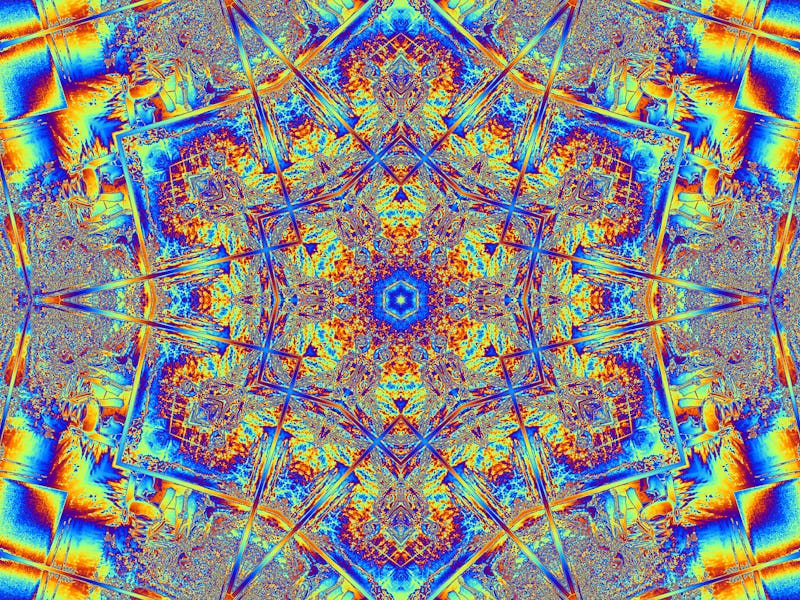Psychedelic Drugs Might Actually Tap into a Higher Power
A bunch of religious leaders are taking shrooms to find out.

Rabbi Zalman Schachter-Shalomi, a veteran psychonaut and founder of the Jewish renewal movement, once said: “To understand the depth of religion, one needs to have firsthand experience. It can be done with meditation. It can be done with sensory deprivation. It can be done a number of ways. But I think the psychedelic path is sometimes the easiest way, and it doesn’t require the long time that other approaches usually require.”
Schachter-Shalomi was no stranger to psychedelics. He’d tripped in the ‘60s with Timothy Leary and Ram Dass (né Richard Alpert), Harvard psychologists who pioneered research into LSD and magic mushrooms. Back then there was a lot of academic interest in mystical experiences and other benefits associated with of those drugs: in one experiment, Leary, Alpert, and psychiatrist Walter Pahnke gave shrooms to theology students at Boston University’s Marsh Chapel and found that nine of ten reported powerful spiritual highs.
That was, of course before Harvard put the kibosh on psychedelic research, Nixon launched the Drug War, and the whole field went into decades of dormancy. But in recent years psychedelic research has slowly returned to the mainstream — with university scientists and nonprofits like the Multidisciplinary Association for Psychedelic Studies introducing a sober, FDA-approved, clinical approach. In the process we’re recognizing how psychedelics can form new connections in the brain and introduce new perspectives, helping patients overcome addiction, anxiety, depression, and PTSD.
And so it’s not exactly surprising that, for the past few months, a handful of religious leaders have been getting high for the first time. The Johns Hopkins and NYU Religious Leaders study includes what will be a total of 24 Muslim imams, Jewish rabbis, Buddhist roshis, and Hindu, Protestant, and Catholic priests who had never done psychedelics before. In study sessions, they are given capsules of synthesized psilocybin, the active compound in magic mushrooms, and told to lie down with eyeshades on, while wearing headphones that play calm classical or global music.
“It’s our thought that the foundational underpinnings of the world’s religions may stem from a common sense of unity and interconnectedness, and that perhaps there’s something very similar about them,” says Johns Hopkins psychologist Dr. Roland Griffiths, lead author of the study. “So what would such an experience mean to someone who’s dedicated their life to the study of their own scriptural tradition, teaches spirituality within the context of those traditions, and provides ministry for people in suffering?”
What if Michelangelo took shrooms?
A mystical experience in clinical terms is defined by feelings of “internal and external unity, transcendence of space and time, ineffability and paradoxicality, sense of sacredness, sense of ultimate reality (‘noetic quality’), and deeply felt positive mood.” This supposedly matches the descriptions put forth by saints and mystics over millennia.
“With psychedelics, there are two metaphors that people always experience: ‘OMG I found God,’ or ‘OMG I’m dying,’” says Zach Leary (Timothy’s son), social theorist and host of the MAPS podcast, as well as his own podcast It’s All Happening. “They’re based off the same premise: Do psychedelics have some sort of predefined or predisposed notion that conjures up messages of divinity and God?”
These ideas make some people uncomfortable. “In our modern western culture, there’s an absence of mysticism. Instead we look to science,” says Leary.
And yet the evidence is building. What with the dozens of clinical studies demonstrating the efficacy of psychedelic-assisted psychotherapy, mysticism is all too difficult to ignore — especially when the mystical experience is often the mechanism by which patients begin to heal. In the current psilocybin-assisted psychotherapy research, for instance, mystical experiences are helping patients overcome ailments like addiction or end-of-life cancer anxiety.
As if Ganesha weren't trippy enough ...
Griffiths and fellow researchers Katherine MacLean and Matthew Johnson showed in a 2011 study that the psilocybin-induced mystical experience could increase personality openness. “In participants who met criteria for having had a complete mystical experience during their psilocybin session, Openness remained significantly higher than baseline more than one year after the session,” he wrote.
The professor confirmed the same in a 2015 paper he co-authored. “Although biological mechanisms underlying the mystical experience have not been identified, mystical experiences have a clear operational definition,” he wrote. “And the value of mystical experiences in terms of predicting positive outcomes has been empirically demonstrated.”
These changes can turn a life around.
“It seems to predict attributions that people make in the long term to positive changes in their life, perception of self, and compassion for others,” Griffith says. For instance, reduced craving scores in cigarette smokers are correlated with the magnitude of the mystical experience: the higher the mystical experience, the fewer cravings. In cancer patients, the higher the mystical experience score, the less anxiety and depression they’re likely to report.
Do you see visions in the clouds?
Even if we don’t understand exactly how drug-induced mystical experiences are helping people, it’s hard to look past these proven effects.
In the coming years, that could that could force the DEA and FDA to grapple with the concept of legal tripping — and it could change what the modern world thinks about mysticism itself.
“What we’re finding is the world itself is not this dualistic Cartesian duality world [with] this duality between the mechanistic, physical, material and the spiritual, ghostly, and abstract,” says psychologist Neal Goldsmith, author of Psychedelic Healing: The Promise of Entheogens for Psychotherapy and Spiritual Development. “The entire universe is imbued with whatever fundamental stuff, call that God if you want, or subatomic quantum mechanics, but it’s this sense that the world is not dualistic, but one whole thing. Then it becomes reasonable that matter would have in it a source or ‘magic’ essence that initiates healing.”